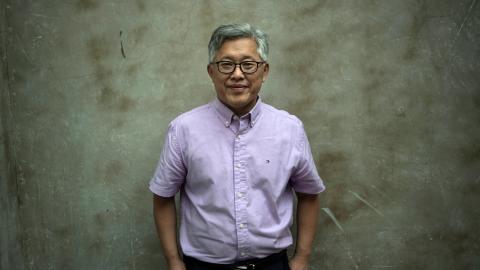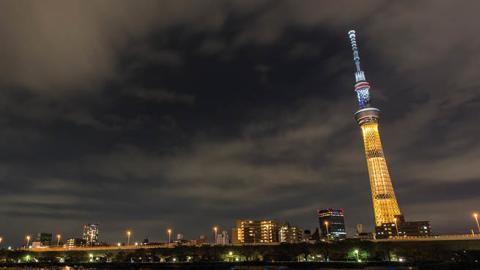Politics is never far from international sport. There will be immense focus on and responsibility for Japan over the next ten months.
On November 2, the final of the Rugby World Cup will be played out in Yokohama. In July 2020, Tokyo will host the Olympic Games. It is not just national reputation for competence and hospitality at stake.
In 2008, China used the Olympic Games to showcase its arrival as a successful authoritarian nation to the world. Before then, Japan stood as the regional exemplar of a modern and successful nation. Since 2008, the emerging contest in Asia about the future of democracy and its suitability for a rapidly growing but still largely poor region has intensified.
Perhaps only temporarily, the appeal of the United States is fading. On the back of the spotlight being on Tokyo in the lead-up to the Olympics, the pressure is on Tokyo to carry the baton for promoting the virtues of democracy in a still undecided region.
There is much at stake. From the mid-1970s to the early 1990s, more than 30 countries experienced democratic transitions. Even well into this decade, there were high hopes that democracy could advance in Asia. Japan, South Korea, and Taiwan took the lead. Thailand, Malaysia, and Singapore displayed potential. The transition to democracy in Indonesia began in 1998 after the fall of Suharto. Modernization theory, which focuses on the rise of a middle-class and the its role in agitating for and entrenching democracy, was ascendant.
Optimism for political reform is not extinguished, but it has subsided. More serious is the prospect that democrats have lost, if not their conviction, then their fight. When China’s Xi Jinping upended 40 years of caution and abolished norms of presidential term limits, it was largely met with resignation. The decline of democracy in Cambodia and Myanmar is largely met by a shrug of collective shoulders. In fact, more effort is spent excoriating democratically elected Donald Trump than genuine autocrats.
Why is authoritarianism resilient in Asia and its appeal – even within democratic polities – on the advance? We must begin with the reality that there are relatively few genuine democrats in the region. Consider a 2017 Pew Survey of citizens from the Philippines, Vietnam, and Indonesia – a stumbling democracy, a one-party state, and a pluralistic polity, respectively. Only 15 percent, 12 percent, and 8 percent respectively were “committed democrats” favoring electoral democracy under any circumstances. Most assess the desirability of political systems on performance and action rather than process.
This deeply embedded instrumentalist or pragmatic view of democracy largely accounts for the phenomenon of both “authoritarian resilience” and “democratic erosion” in Asia in recent times. Consider Thailand. It has experienced at least 15 coups or coup attempts since becoming a constitutional monarchy in 1932. With respect to the latest coup in 2014, the junta experienced its highest approval ratings months after the takeover as it was perceived that military leaders had a better chance of restoring order to Thai society and politics.
In the Philippines, Rodrigo Duterte was initially elected on the promise that he would do whatever it took to reverse crime rates, destroy the drug trade, reduce corruption, and build the country’s infrastructure. His approval ratings — almost 80 percent earlier this year — are the highest of any president on record since the 1980s despite his illiberal tendencies: extra-judicial killings as part of the anti-drug campaign, intimidation of political opponents, and so on.
Most significant is China. The Communist Party promotes the superiority of its politics based on economic performance. Xi Jinping lauds his “ new type of political system ” as superior and ready to be exported to other parts of the world. Beijing frequently contrasts its model with the chaos and dysfunction of democratic politics.
For the sake of regional democracy, the focus must be directed toward Japan. The Shinzo Abe administration, which has been in government since 2012, proves that political stability and longevity is possible in a democratic set-up.
Importantly, Abe has won three general elections on the back of bold economic policy prescriptions, disproving the hypothesis that “doers” cannot survive for long in democratic politics. Under the banner of making a more “proactive contribution to peace,” Abe has emerged as the preeminent statesman amongst democratic leaders in Asia.
Significantly, in the swing region of Southeast Asia where democrats and autocrats engage in constant and furious debate, multiple surveys reaffirm that Japan remains by a considerable margin the nation most trusted to do the right thing for the region. For example, the 2019 State of Asia Survey conducted by the ISEAS – Yusof Ishak Institute in Singapore of Southeast Asian states revealed that around two-thirds of respondents were “confident” or “very confident” that Japan would “do the right thing in contributing to global peace, security, prosperity and governance.” In the same survey, more than half the respondents had “no” or “little” confidence that the United States or China would do the same.
These views are occurring at a time when Japan is adopting a more expansive strategic and defense posture, including moving towards a virtual quasi-alliance with Australia, sending a submarine to contested areas of the South China Sea for the first time, emerging as a major supplier of military equipment to Southeast Asian nations, and forging closer relations with the Trump administration. This is certainly not the coward’s approach to electoral success and regional favor.
Emphasizing that political leadership in a democracy is possible and exposing the world to the “good life” enjoyed by citizens of a successful democratic nation are sensible places to start. Tokyo remains best placed to make this argument.
Democracies need not overreach when it comes to promoting the benefits of universal suffrage and accountable and transparent governance. But they must accept they are in a contest of political ideas, especially in Asia.
There is no better time to subtly promote that narrative leading up to the Olympic Games when the world will descend on Tokyo.
Read in The Diplomat














